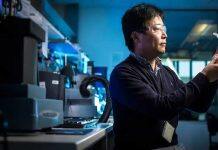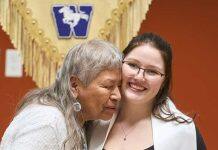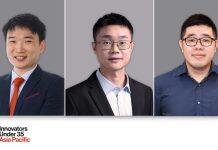Lancaster Physics PhD student Sergio Gonzalez-Munoz has won a prestigious award at the 2023 Fall Meeting of the European Materials Research Society.


The Young Researcher award recognises graduate students of exceptional ability who demonstrate a high level of excellence in materials research showing promise for significant future achievement in this area.
Sergio was the lead author on a paper published in Advanced Material Interfaces which used cross-sectional scanning thermal microscopy to independently measure the in-plane and cross-plane thermal conductivity in nanoscale flakes of indium selenide.
He said: ““I am both delighted and greatly honoured to have received this award. It is deeply satisfying to see my studies highlighted in such a prestigious event, where I could disseminate our research about the novel thermal and thermoelectric behaviour of bidimensional materials to a renowned international audience.”
The European Materials Research Society Young Researcher Awards are intended to honour and encourage graduate students whose academic achievements and current materials research display a high level of excellence and distinction.
Lancaster’s Professor of Nanoscience Oleg Kolosov said: ““Sergio has a unique ability to combine the exploratory spirit of the inquisitive researcher, allowing him to overcome challenging problems of experimental research, and the in-depth knowledge of underlying theory.
“This enabled him to solve one of the hardest problems of experimentally measuring the directional thermal transport in two-dimensional materials assembled from a few single atomic layers held together by weak van der Waals forces.”
Sergio Gonzalez-Munoz said: “Thermal energy dissipation and harvesting are major topics in modern-day electronics, and our work delivers the necessary tools to understand the intrinsic directionality of heat in such devices as well as providing a platform for enhanced thermoelectric efficiency. Having received this award validates the impact that this subject has in nanotechnology and opens exciting opportunities for my future research in the field.”







































